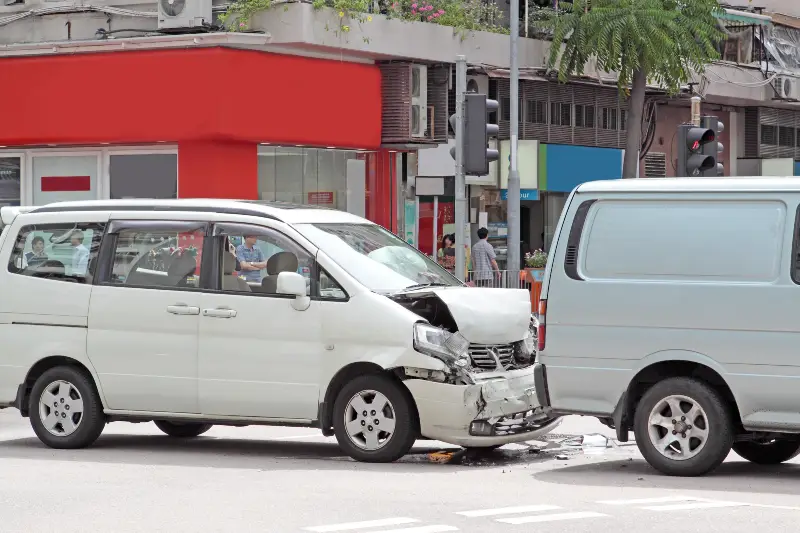In most cases, you have witnessed car accidents while going to work in the morning.
They can be classified into two major categories: the ones caused by the driver’s mistakes, and those that are not. Drivers’ mistakes are the most frequent reason of car accidents and they can be prevented.
Here are 17 common causes of car accidents. You can reduce the risk of accidents by understanding these causes and taking appropriate preventative measures while driving.
1. Distracted Driving
The major cause of a car accident is distracted driving. The chances of an accident happening go up greatly when drivers see away just for a second.
Distracted driving is considered as a not serious risk by many drivers who take risks such as texting, talking on the mobile phones, eating and drinking, or getting distracted by their children in the back seat.
In order to avoid collisions caused by distracted driving, you should pay attention to driving and not involve in any activities that may distract you from driving.
2. Speeding
Another leading factor in accidents is speed. High speed while driving decreases the response time in reacting to unanticipated situations and also tends to intensify the extent of injury during the crashes.
Following the speed limits and modifying speed depending on road and weather are crucial to avoiding danger while driving.
3. Drunk Driving
Too many accidents are caused by alcohol and entirely unnecessary. Alcohol takes away the power of the brain and the coordination of a driver who is then more prone to make mistakes behind the wheel.
Don’t drink and drive. Alternatively, take a taxi or a ridesharing service instead.
4. Drugs Driving
Using drugs, be it prescription, over-the-counter, or illegal, also is a factor in car accidents while driving. Some materials can affect motor control, attention and judgement. Never drive when you have ingested any substance that can impair your coordination to drive.
5. Reckless Driving
The behaviors of reckless driving that include tailgating, straddling of lanes and without the proper signals, bring about dangerous accidents. So, you should drive defensively and obey the rules of the road in order to protect yourself and others.
6. Ignoring Traffic Signals
Running of red lights and stop signs are among the most recurrent causes of accidents. Failure of drivers to observe these traffic control devices leads to risks to themselves and other road users. Stop at stop signs and red lights completely stopping and waiting for the green light to go ahead.
7. Aggressive Driving
Aggressive driving can take on numerous forms, namely speeding, tailgating, and frequent lane changes. However, drivers could be either unaware of their dangerous actions or deliberately aggressive.
For you to minimize the accidents that may result from aggressive driving, always keep calm while on the road and do not engage aggressive drivers.
8. Short Distance
Rear-end accidents are common when drivers tailgate the car ahead of them. Keep a safe space between you and car ahead to give enough time to react in case of an emergency stop or braking by the front car.
9. Tired Driving
Another cause of accidents is overtaking while tired, as fatigue, sleep disorder, and working long hours all result in delayed reaction times and bad judgment. Ensure you are properly rested before driving. Have frequent breaks in long journeys, and when you feel drowsy, stop to rest or change drivers if there is someone else.
10. Car Defects
The defects in a car, for instance, the faulty brakes or the tires that have worn off, and other defects of a vehicle can lead to an accident since they are not looked into in time. Maintenance of the vehicle is an imperative step to ensure that your vehicle is in good working order. Additionally, deal with all issues immediately.
11. Teenagers
The risk of car accidents among teenagers and other novices arises due to their lack of driving experience and their tendency towards taking risks. Parents need to assist teenagers in driver’s education programs and implement very strict driving rules for their children.
12. Night Driving
Night driving is often quite difficult as it results in low visibility as well as increased fatigue. Make sure your headlights are working properly, and keep an eye on obstacles on the road when driving at night.
13. Animal Crossings
Sudden meetings with animals that come on the road can result in accidents. In populated animal regions, be vigilant of animal activity along the road and take the speed down.
14. Making Incorrect Turns
Improper turns, for example not using a signal or turning from the wrong lane, also cause accidents. Ensure a smooth move by checking your mirrors and blind spots, and signalling your lane change.
15. Wrong-way Driving
Driving the wrong way on a one-way street or a highway may lead to the head-on collisions. Stay alert to road signs and marks, and flow with the traffic to avoid driving in the wrong direction.
16. Road Conditions
Potholes, construction zones, and other poor road conditions as well as may cause accidents. Be vigilant and be prepared to change your driving style to cope with these challenges.
17. Poor Weather
Events such as rain, ice, and fog can make driving more challenging and raise the chances of accidents. Although it is difficult to avoid bad weather completely, there are measures that one can take to contain the pain.
In such conditions, you’d better drive at a reasonable speed, keep a safe following distance and with the help of headlights to improve the visibility.





